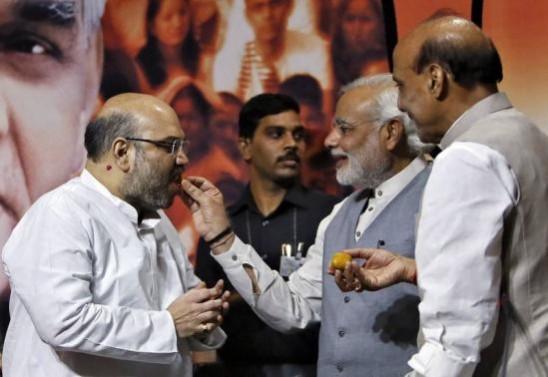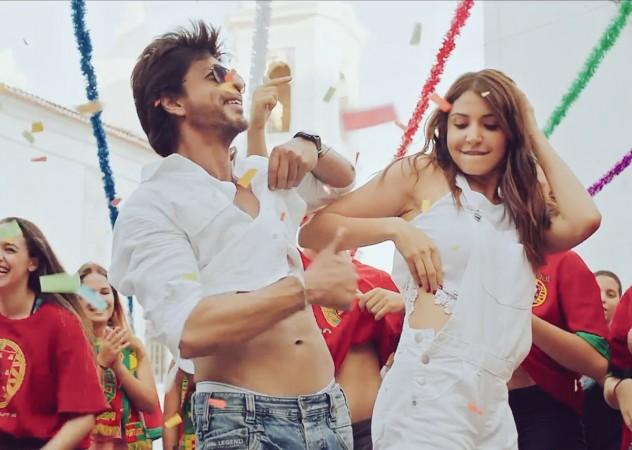
It was perhaps a first in the history of India. An election to the Rajya Sabha in the state of Gujarat was followed and discussed by the media more than a film of one of the country's top actors – Shah Rukh Khan – released around the same time.
Yes, the story couldn't have been more interesting. When the media and the common man were eagerly waiting for the outcome of the high-voltage Rajya Sabha election to know whether Congress president Sonia Gandhi's close aide Ahmed Patel would live another day, a man in Pune tweeted to External Affairs Minister Sushma Swaraj pleading her to "rescue" him from the experience he had while watching Jab Harry Met Sejal, the latest release of Khan also featuring Anushka Sharma.
@SushmaSwaraj mam, I'm watching #JabHarryMetSejal at Xion cinema Hinjewadi, Pune. Please rescue me as soon as possible.. ??
— Vishal Surywanshi (@vsurywanshi87) August 5, 2017
India prefers its changing politics more than a stagnant Shah Rukh Khan?
The two incidents apparently have no links between them but yet they show that politics and the media's presentation of news related to politics have overtaken films as people's preference. Politics might have become a bigger entertainment than films, thanks to the revolutionary act of agenda-setting by the media or may be the common man is more influenced by the media to follow politics in the era of Narendra Modi – but whatever it is, the greater attraction of a Rajya Sabha election over an SRK film is a new phenomenon in India.
Three fields have always dominated the sphere of popularity in this country and they are cricket, besides films and politics. However, over the last several years, politics began to lose its appeal among the common people compared to films and cricket because of factors like corruption, falling credibility and people's representatives, lack of leadership, etc.
But since Modi's victory in the 2014 Lok Sabha elections and the BJP's concerted efforts to engage with people through popular medium and the media's contribution towards making broadcast of political affairs a primetime routine, politics has now regained prominence in public discourse.

BJP's political success has generated a curiosity among post-Congress generations
The new trend of the BJP sweeping one part of the country after another has also given rise to a new curiosity among people about the post-Congress system in India. "Will BJP indeed wipe out the Congress from the landscape of India?" is a question that keeps many thoughtful. Besides, factors like nationalism and Hindutva that constitute a feeling of national pride have also gone against the Congress, which is seen as a party that did more harm to the nation than not.
Modi's popular leadership, BJP's relentless success, media's well-planned execution of an agenda and the Congress's historical baggage have ultimately made even a Rajya Sabha election a matter of popular discussion. There is a certain degree of democratisation of the otherwise elitist institution called the Upper House of Parliament.
Can the liberated Indian mind today be allured with candyfloss?
SRK's latest film, on the other hand, is an exact anti-thesis to the new found excitement in politics. The same 'hide-your-age' hero romancing a far, far junior actress has made King Khan predictable and his film amounts to a killing boredom. Today's youth, who is no more caged and belong to the global economy and for who western locations of a film are no more too distant to cover, such feel-good doses an SRK film only seem superfluous. The era of the Dilwale Dulhaniya Le Jayenge is long gone.
On the other hand, the more realistic episodes of politics that are being played out before our eyes today have a far bigger appeal. It is not that Bollywood doesn't come up with realistic films nowadays but what the 51-year-old romantic hero is churning out is perceived nothing more than candyfloss.














